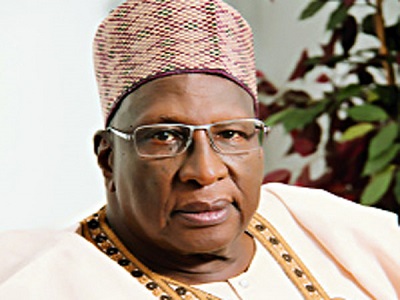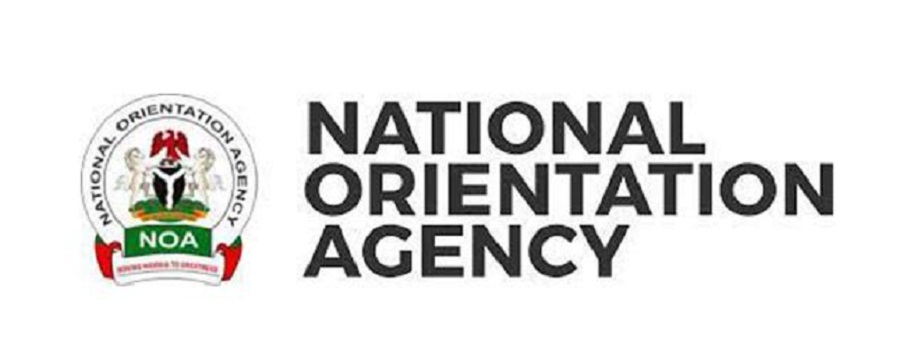News
AfDB Commits $57.66m Towards Food Security in Horn of Africa

African Development Bank has signed a $57.66-million loan agreement for the multinational Drought Resilience and Sustainable Livelihoods Programme (DRSLP) in the Horn of Africa (HoA) with the Government of Kenya, bringing to $3.04 billion the Bank’s commitment in the country’s various sectors.
The programme will be carried out in phases, with the first phase beginning in 2013 in Djibouti, Ethiopia and Kenya.
It will focus on about four million beneficiaries in the first five years.
Speaking at the signing ceremony, Gabriel Negatu, AfDB Regional Director for the East Africa Resource Centre (EARC) explained that the entire program would cover eight countries in the Horn of Africa over the next 15 years, including Eritrea, Somalia, South Sudan, Sudan and Uganda, in addition to the three countries in the current phase.
“It is necessary to have all the countries in the program because if one country has better water, pasture and livestock services, the pastoralist will move there and this could lead to overgrazing, transmission of trans-boundary animal diseases and conflicts. The next phase is expected to start as soon as funds are available for the remaining countries. This could be as early as end of 2013,” Negatu said.
In Kenya, the project will cover the counties of Baringo, Isiolo, Marsabit, Samburu, Turkana and West Pokot. It seeks to provide assistance to enhance drought resilience and improve sustainable livelihoods of the communities in the arid and semi-arid lands of Kenya. In this regard, the project will contribute to the development of water supply and development and rehabilitation of irrigation schemes; improvement of livestock infrastructure and their management; and strengthening of both human and institutional capacity to improve operational capabilities in the project area.
Phase one will look at improving management of natural resources, livestock market infrastructure and agro-pastoralists’ livelihoods. It will also include the enhancement of animal health system and regional cooperation for the management of trans-boundary natural resources.
The Horn of Africa (HoA) region is often affected by severe recurrent droughts and chronic food insecurity. In 2011, the region faced the worst drought in decades that decimated crops and livestock, and left over 12 million people, mainly the pastoralist communities, in total distress across the affected region.
Based on this analysis, during the African Union Summit in August 2011, the Bank reiterated its long-term commitment to provide support for a lasting solution to drought and to build resilience and improve sustainable livelihoods of the pastoral communities in the HoA region.
News
NOA Uncovers Fraud by Banks, Universities in Students Loan Scheme

National Orientation Agency (NOA) has revealed that an investigation by its Community Orientation and Mobilisation Officers (COMO) uncovered unethical practices by some tertiary institutions, in collaboration with certain banks, that are depriving students of their rightful access to the Federal Government Student Loan Fund.

Paul Odenyi, deputy director of Communications and Media, in a statement Sunday, disclosed that several universities and financial institutions have been found engaging in fraudulent activities that prevent students from receiving the loans allocated to them.
Mallam Lanre Issa-Onilu, director general, NOA, shared these troubling findings following a high-level meeting with Mr. Akintunde Sawyerr, managing director, Nigeria Education Loan Fund (NELFUND), over the weekend.
According to NOA, preliminary reports led to an urgent intervention from NELFUND after it was discovered that some university officials had deliberately withheld critical details about student loan disbursements.
Further feedback from NOA confirmed that certain institutions, in collusion with banks, have intentionally delayed payments to approved applicants for dubious financial gain.
Additionally, some universities do not acknowledge the disbursements made by NELFUND to students.
Sawyerr confirmed that certain institutions have withheld information about loan payments issued in students’ names while still demanding tuition fees from them.
He warned that NELFUND is ready to take legal action against institutions found guilty of engaging in fraudulent practices.
He stated, “Recent findings by NELFUND have shown that some institutions have received student loan disbursements directly into their accounts yet neglect to inform the affected students or record the payments in their financial records, leading to unnecessary confusion.
“Withholding critical financial information from students is not only unethical but also a breach of the principles on which NELFUND was founded.
“We are prepared to take legal action against any institution engaged in such deceptive practices.”
The investigation revealed that in some instances, universities continued to demand full tuition payments from students, despite having already received the loan funds intended to cover those fees.
According to the NOA, this constitutes a gross violation of student rights and a betrayal of public trust.
Issa-Onilu, therefore, issued a strong warning to the institutions and collaborating financial institutions, demanding an immediate end to these actions.
He also directed all NOA state directorates to intensify feedback collection from students nationwide to aid the Federal Government in identifying and penalising the erring parties.
The NOA emphasised its commitment to transparency, accountability, and ensuring that students benefit fully from the government’s intervention in education financing.
The statement added that the investigation remains ongoing, and further actions are expected in the coming weeks.
General News
Nigeria Records $6.83Bn Balance of Payments Surplus in 2024 Amid Economic Reforms

Central Bank of Nigeria (CBN) has announced a remarkable $6.83 billion balance of payments surplus for 2024, marking a decisive turnaround from deficits of $3.34 billion in 2023 and $3.32 billion in 2022.

This achievement reflects the impact of sweeping macroeconomic reforms, stronger trade dynamics, and renewed investor confidence in the nation’s economic direction.
Speaking at the 36th Enugu International Trade Fair, Acting Director of Corporate Communications, Mrs. Hakama Sidi Ali, highlighted the CBN’s commitment to addressing economic challenges and fostering productivity, particularly for SMEs.
She emphasized the importance of robust financial systems, foreign exchange stability, and collaboration between monetary and fiscal authorities in achieving industrial development and global recognition.
The President of the Enugu Chamber of Commerce, Sir Odeiga Jideonwo, commended the CBN’s efforts but expressed concerns over the recent hike in interest rates, cautioning that it could hinder access to credit for businesses.
This surplus signals a positive trajectory for Nigeria’s economy, benefiting investors, businesses, and citizens alike.
News
Senate Committee Partners with Kuda Bank to Tackle Compliance Crisis as Nigeria Loses ₦3.4 Trillion

Over ₦3.4 trillion in financial infractions were uncovered across federal Ministries, Departments, and Agencies (MDAs) in 2021, according to the Auditor General’s report — a staggering figure that highlights Nigeria’s deepening compliance crisis and the urgent need for stronger oversight in public institutions.

In response, the Senate Committee on Legislative Compliance is hosting a high-level workshop to address the root causes of weak oversight and institutional gaps. The two-day event, with the theme ‘Consolidating Strategies for Strengthening Legislative Compliance by MDAs’, will take place on April 15 and 16, 2025 at NAF Suites, Abuja, bringing together lawmakers, regulators, and over two hundred representatives from federal MDAs.
Kuda Microfinance Bank is co-sponsoring the workshop as part of its commitment to supporting responsible innovation, governance, and regulatory alignment in Nigeria’s financial ecosystem.
Rasaq Kadri, Kuda’s Head of Compliance, will deliver a keynote address on the second day of the event, highlighting the efforts of Nigeria’s fintechs to promote inclusion and financial literacy without compromising on compliance best practices.
“When public funds go unaccounted for, it doesn’t just damage government credibility, it affects the entire financial ecosystem, including fintechs,” said Kadri. “We can’t build trust-driven products in a trust-deficient environment. Every time compliance is treated as a box-ticking exercise, we miss the chance to build something that lasts. Fintechs have the tools and perspective to support better governance, but more importantly, we have a responsibility to be part of the solution.”
As a sponsor, Kuda will take the workshop to engage directly with key stakeholders in Nigeria’s regulatory and public service ecosystem.
Plenary sessions will be chaired by the Honourable Attorney General of the Federation, Lateef Fagbemi SAN, and the Honourable Minister of Finance, Wale Edun. Conversations will focus on closing compliance gaps, strengthening institutional transparency, and promoting cross-sector collaboration.
The Senate Committee on Legislative Compliance Workshop is a unique platform for dialogue, knowledge-sharing, and collaborative action.

 Telecom3 days ago
Telecom3 days agoMTN Plans Second Public Offer in Nigeria

 Broadcasting3 days ago
Broadcasting3 days agoSubscriber Withdraws Suit against MultiChoice, FCCPC over Price Hike

 E-Business3 days ago
E-Business3 days agoCyberattacks: ‘56 Percent of Cases Stem from Existing Logins

 News3 days ago
News3 days agoSenate Committee Partners with Kuda Bank to Tackle Compliance Crisis as Nigeria Loses ₦3.4 Trillion

 E-Business3 days ago
E-Business3 days agoKaspersky Presents Insight on 14% Increase in Spyware Attacks on Businesses in Africa @ GITEX Africa

 E-Financial3 days ago
E-Financial3 days agoSterling Bank Reiterates Transfer Fees Removal

 General News3 days ago
General News3 days agoOpenAI Sues Elon Musk Claiming Bad-Faith Tactics

 General News3 days ago
General News3 days agoFG Unveils e-Visa, Digital Entry Cards to Strengthen Border Security


























